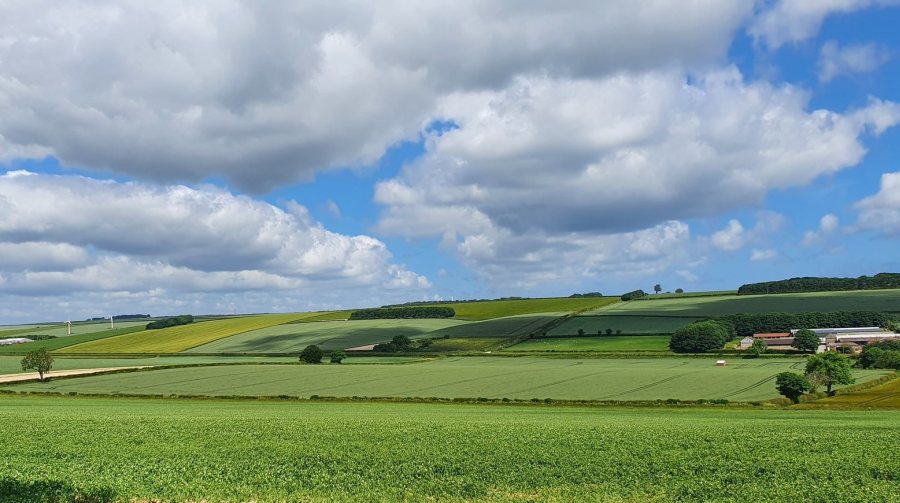
A group of seventeen farming businesses in the Yorkshire Wolds are collaborating as part of a major effort to improve soil and water quality in the area.
The five-year Sustainable Landscapes Wolds Programme includes farms covering 10,000 hectares around Kilham, near Driffield, East Yorkshire.
Funded by Yorkshire Water, it involves each farmer growing a minimum of 10 hectares of cover crops – dubbed ‘pop up rain forests’ – each year between food crop rotations.
Doing this, they aim to sequester atmospheric carbon, increase soil organic matter (SOM) and improve the land’s capacity to hold water.
This means crop inputs, particularly nitrogen, are held on the fields rather than leaching off into local aquifers and water courses before needing to be removed in costly treatments by Yorkshire Water.
Andrew Walker, asset strategy manager at Yorkshire Water said: “By embracing techniques that improve the biological functionality of soils, we can deliver more resilient, nutritious and sustainable food; improved biodiversity and pollinators; flood mitigation as well as improved water quality.
"More recently we have been able to demonstrate that growing cover crops and ensuring there is always something growing in our fields, we can sequester significant volumes of carbon at the same time."
The cover crops are made up of a diverse range of plant species chosen for their ability to capture CO2 from the atmosphere and, via their roots, nutrients from previous crops.
Previous trials funded by Yorkshire Water show that growing them can increase above ground biomass by up to 40 tonnes per hectare and that just a 1% rise in SOM enables a hectare of land to absorb an extra 240 tonnes of water.
As the trials achieved significantly more than this – doubling SOM from 3% to 6% over five years – the Sustainable Landscapes Wolds Programme could significantly improve local soil and water quality.
The programme is being led by farming couple Liz Sellers and Jeremy Harrison who run Harrison Farms Ltd, a 4,000-acre arable enterprise spread across three farms in Kilham and nearby Sledmere.
A small amount of their land is contract farmed, but the rest is managed by the Harrison family who grow malting barley, wheat, OSR, seed potatoes and vining peas.
The couple have opted for a post-pea cover crop as this best suits their harvest schedule.
Ms Sellers said: “With basic payments tailing off and a drive to be more efficient, we need to reconsider everything – soil health, water, the nutrients we apply, machinery use – and how these fit into running a sustainable, profitable farming enterprise.
“The great thing about this trial is everything is measurable. We can measure the improvement in soil health and how that improves yield and Yorkshire Water can measure the improvement in the water. If we get this right, everyone wins.”
Liz added that Yorkshire Water had been flexible in how farmers participating in the trial could use the 10 hectares of cover crop seed provided, enabling them to sow where and when they wanted and encouraging research, collaboration, and group learning.
“For this to work, it needs to fit into our harvest schedule, and that is the same for all the farmers in the group,” she said.
“For us, the best time to drill is post pea, but for others it will be different. The point is, we have to remain a profitable business and this needs to be a part of that.
"Sustainability is about the environment, of course, but it is also about the long-term future of farming as well. That too, must be sustainable whilst maximising yield and enabling us to deliver great British food production."
